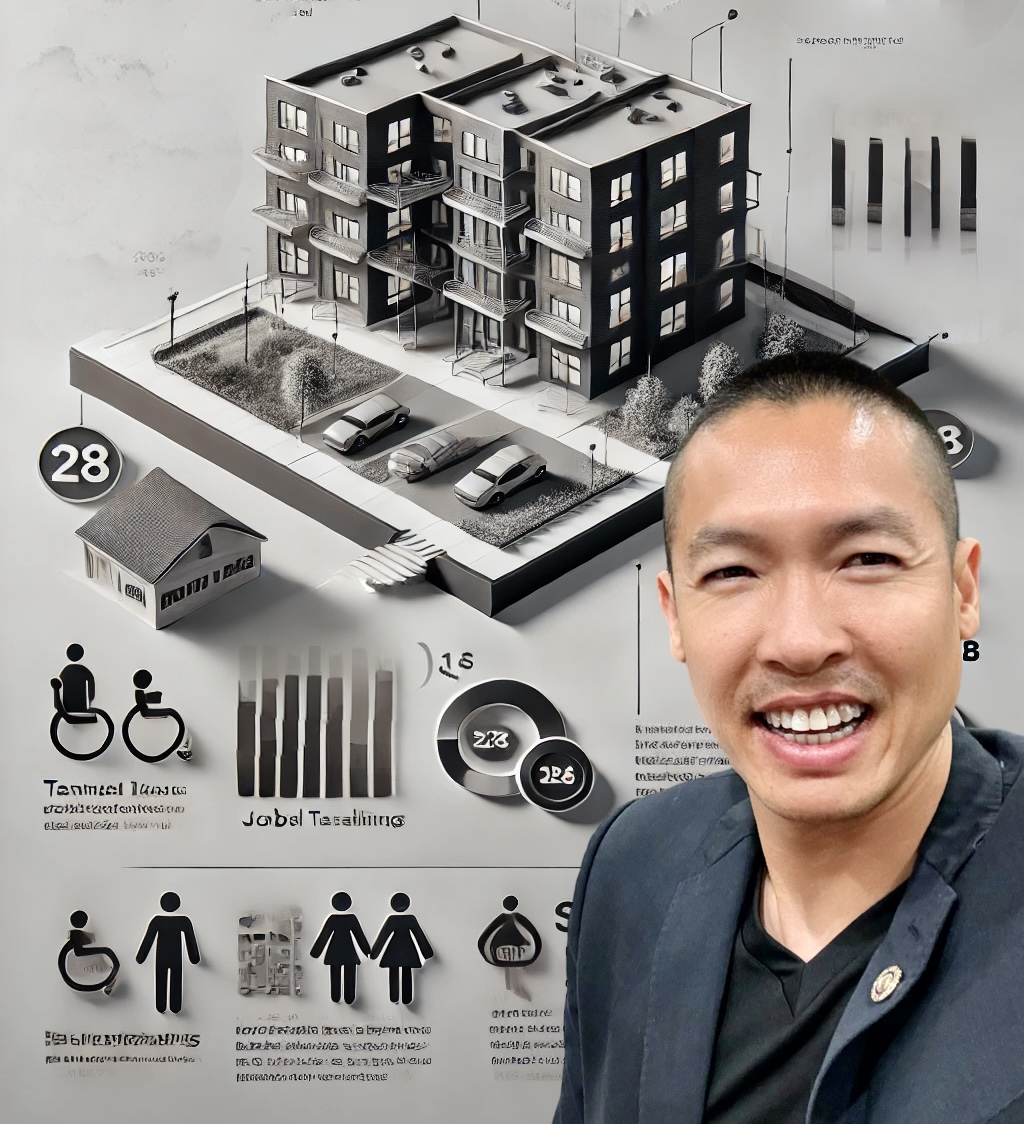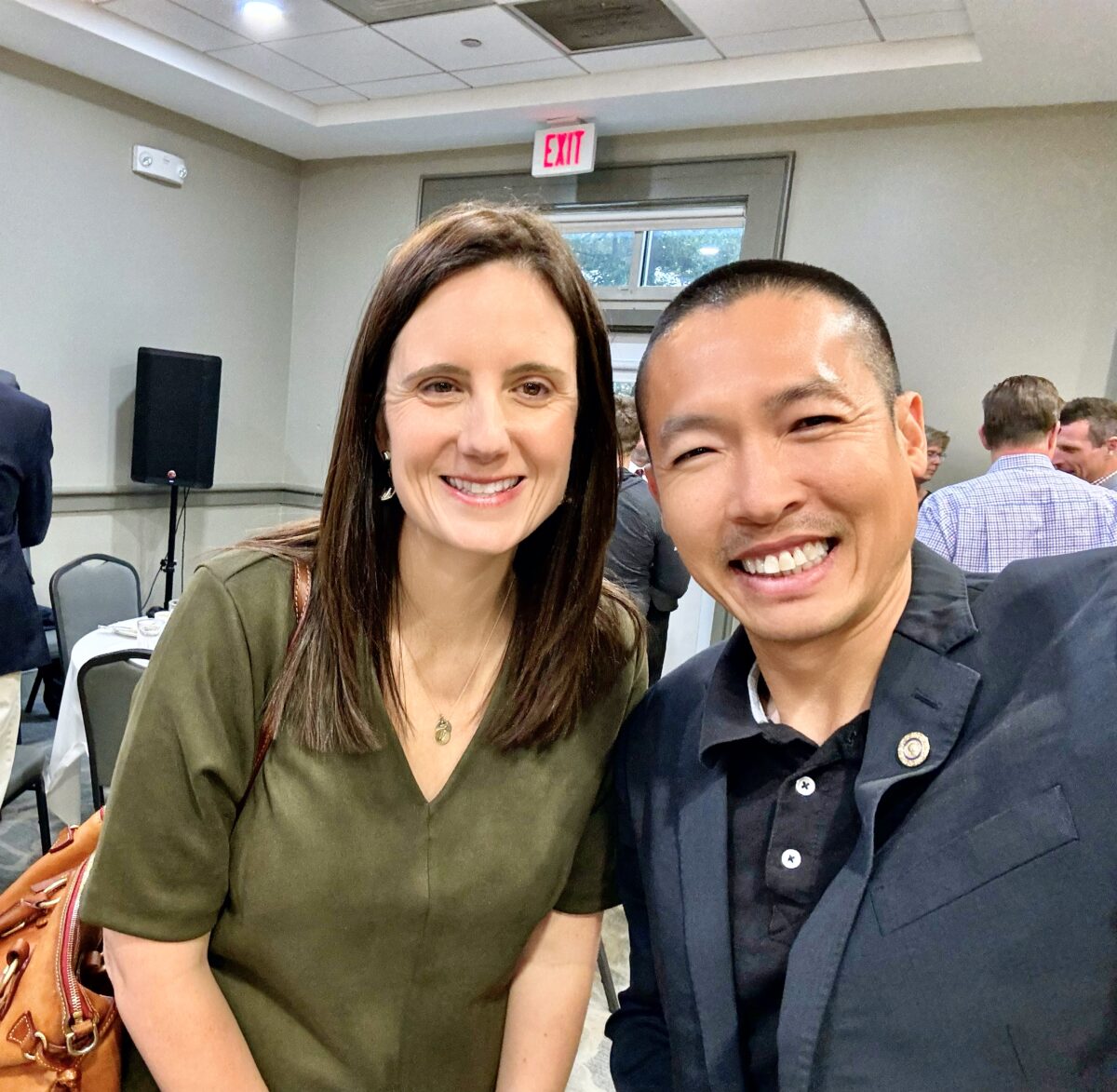Tran Family Properties, LLC of Di Tran Enterprise and New American Business Association Inc (501c3) is more than a real estate development company—it’s a movement dedicated to elevating lives, fostering inclusivity, and creating sustainable communities. At the heart of its mission is a commitment to affordable housing that goes beyond simply providing homes. Tran Family Properties empowers renters by addressing real financial barriers while ensuring quality living spaces that inspire dignity and hope.
What is Affordable Housing?
Affordable housing is defined by law as housing that costs no more than 30% of a household’s gross income, including utilities. This ensures that families have enough financial flexibility to cover other essential expenses like food, healthcare, and transportation. Affordable housing relies on subsidies, tax credits, and policies to bridge the gap between market rates and what low- to moderate-income households can afford.
What is AMI (Area Median Income)?
AMI, or Area Median Income, is a metric used to determine household income levels in a specific geographic area. It is calculated annually by the U.S. Department of Housing and Urban Development (HUD). Households are categorized by income relative to AMI:
- Extremely Low Income: At or below 30% of AMI.
- Low Income: At or below 50% of AMI.
- Moderate Income: At or below 80% of AMI.
For example, in Louisville, KY, the AMI for a family of four is $67,500 (2024). Programs like Section 8 Housing Choice Vouchers use these categories to determine eligibility and subsidy levels.
Affordable Housing: Equal Homes, Financial Support
Affordable housing isn’t about offering lower-quality homes; it’s about making housing accessible through subsidies and thoughtful financial planning. The homes are the same in quality and design, but subsidies—like Section 8 vouchers—bridge the financial gap, ensuring tenants can thrive without being overburdened by housing costs.
Tran Family Properties integrates affordability into its housing approach by aligning with AMI levels to ensure accessibility for families at various income brackets.
Understanding Rent Structure and Subsidies
| AMI Level | Annual Income Limit (Family of 4) | Monthly Rent (including utilities) | Tenant Pays (with Section 8) | Section 8 Pays (estimated 70%) |
|---|---|---|---|---|
| 30% AMI | $20,250 | $506.25 | $152 | $354 |
| 50% AMI | $33,750 | $843.75 | $253 | $590 |
| 80% AMI | $54,000 | $1,350 | $405 | $945 |
This structure ensures that tenants pay an affordable portion of their income toward rent while federal subsidies, like Section 8 vouchers, cover the remainder. Section 8 vouchers make a critical difference for families by addressing affordability without compromising quality.
Elevating Tenants Beyond Housing
Tran Family Properties doesn’t stop at providing affordable housing. Its mission extends to empowering tenants with resources and support services that help them thrive, including:
- Financial Literacy Programs: Helping tenants manage their budgets and build credit.
- Job Training and Placement: Partnering with workforce development organizations to provide career support.
- Community Engagement Initiatives: Creating a sense of pride and belonging among residents.
Tran Family Properties believes in fostering not just stability but also opportunity for everyone it serves.
The Importance of Collaboration
Tran Family Properties is dedicated to working with government agencies, nonprofits, and community leaders to address the growing need for affordable housing. This collaborative approach ensures that projects are tailored to meet real community needs while promoting long-term economic and social stability.
Affordable housing is about more than just a roof over one’s head—it’s about creating opportunities, stability, and hope for a better future. Tran Family Properties embodies this ethos, transforming lives and proving that when we elevate others, we all rise together.
How to Apply for Section 8 Assistance
If you or someone you know falls within the income categories listed above (30%, 50%, or 80% AMI), you may qualify for Section 8 Housing Choice Vouchers. These vouchers provide vital support to help make housing more affordable, covering up to 70% of the rent in most cases.
Why Apply?
Section 8 vouchers allow families, seniors, and individuals to live in safe, high-quality homes while paying an affordable portion of their income toward rent. With the support of these subsidies, you can secure housing stability and focus on building a brighter future for yourself and your family.
How to Apply
To apply for Section 8 in Louisville, KY, follow these steps:
- Visit the Louisville Metro Housing Authority (LMHA) website to check eligibility and availability.
- Submit an application online or in person when the waiting list is open.
- Provide all required documentation, such as proof of income, family size, and identification.
Apply Here: Louisville Metro Housing Authority – Section 8 Program Application
Note: The Section 8 waiting list in Louisville may be long due to high demand, so apply as soon as possible if you qualify. If you need assistance with the application process or determining eligibility, Tran Family Properties and its partners are here to help.
Together, let’s make affordable housing accessible to everyone who needs it. Don’t wait—take the first step toward secure, quality housing today!


